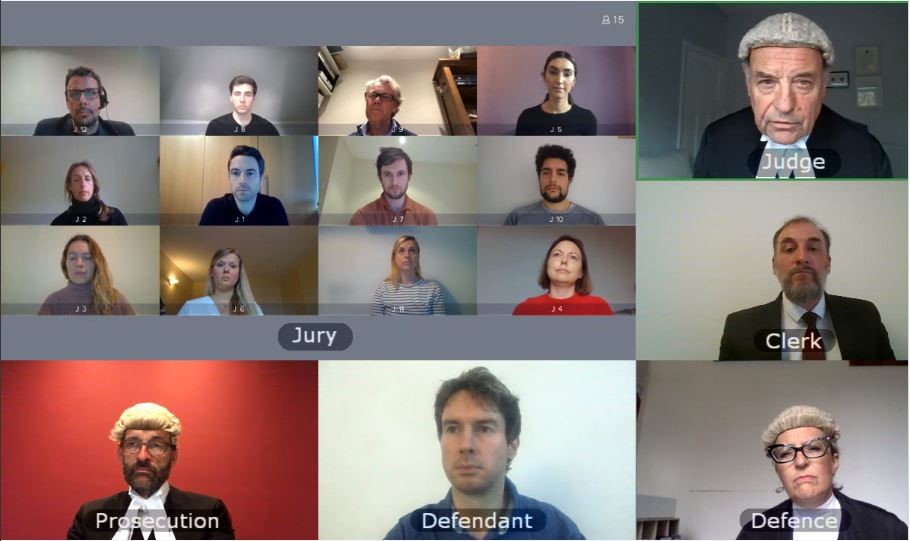Exploring the case for Virtual Jury Trials during the COVID-19 crisis – an evaluation of a pilot study conducted by JUSTICE
Associated people
On 23 March all new trials were suspended, due to fears that they may contribute to the spread of COVID-19. JUSTICE has a number of concerns about this.

In collaboration with Corker Binning solicitors and AVMI, the audio visual solutions company, JUSTICE have been testing whether virtual jury trials are possible using a video platform already utilised in the courts and which can be accessed from home computers. They have commissioned a report by Professor Linda Mulcahy of the Centre for Socio-legal Studies Oxford University and Dr Emma Rowden, School of Architecture, Oxford Brookes University to independently evaluate the initiative. The report, which can be found here, considers how well the technology worked in the virtual trials; compares the conduct of the trial with traditional face to face hearings; considers whether there are any benefits to virtual trials; appraises whether there were any problems that arose which might give cause for a legal challenge; and evaluates what lessons might be learnt from the two virtual trials conducted to date. It concludes that there are still a number of technical difficulties to overcome and that we should be concerned that the digitally excluded and vulnerable may not be able to access or use the systems available.
Despite these difficulties it is argued in the report that there were also some ways in which virtual trials improved on face to face interactions in courtrooms including the democratising impact of lay participants being given comparable space to others in the virtual courtroom and being able to see everyone more clearly.

